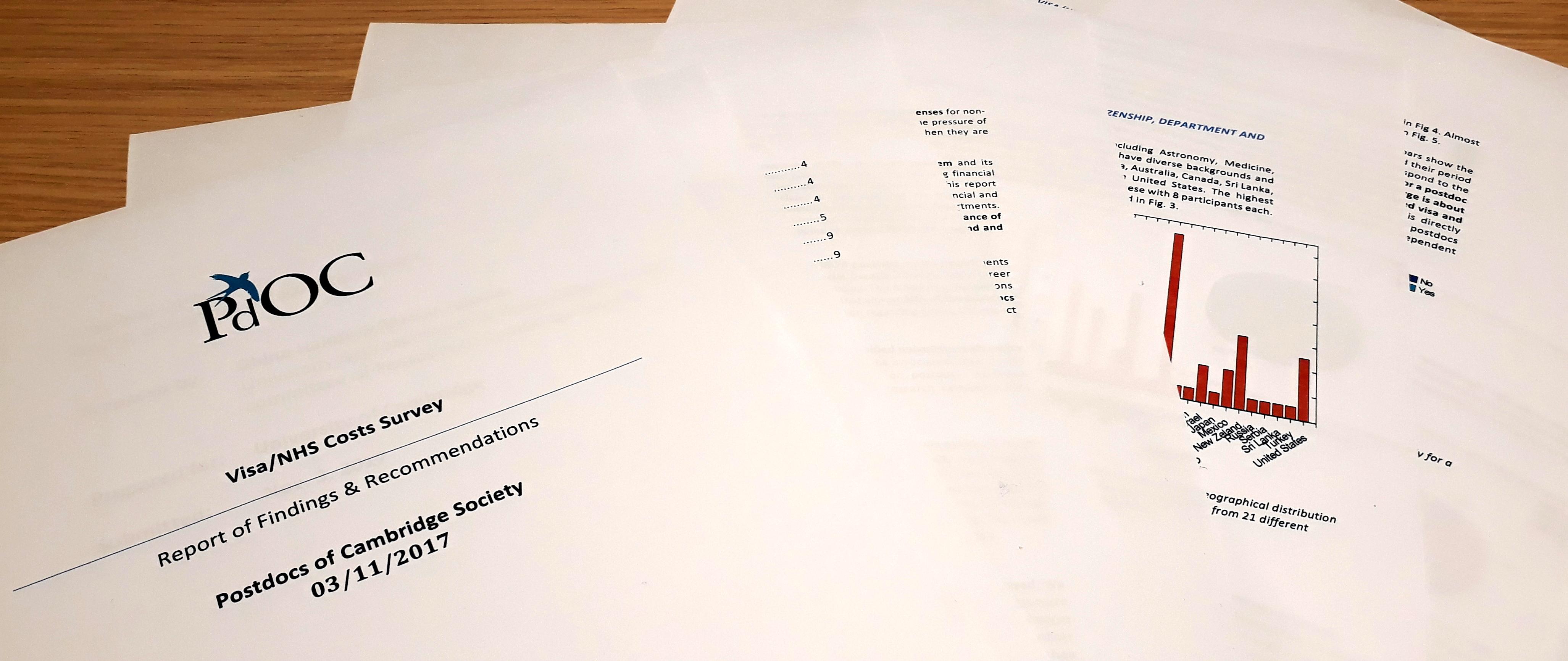PdOC Report on Visa/NHS Costs for Non-EU Postdocs
PdOC Report on Visa / NHS Costs for Non-EU Postdocs
A major concern for the PdOC society and its members is the high cost of visa and NHS expenses for non-EU postdocs who are offered jobs at the University of Cambridge. These expenses add to the pressure of the job and of moving to a new country at a period that usually coincides with the time when they are hoping to settle down, take out a mortgage or start a family.
The aim of this initiative is to provide a quantitative assessment of the size of the problem and its implications, to help the University develop an evidence-based policy to alleviate this pressing financial burden, and therefore sustain its attractiveness to outstanding researchers internationally. This report sheds light on this major issue by providing figures and facts related to these expenses, the financial and social situation of the concerned postdocs, including their backgrounds, funding agencies and departments.
In order to collect data, postdocs from departments and institutes across the University were surveyed. We asked about the visa/NHS expenses they incurred, the frequency of these expenses, whether the costs were reimbursed and their number of dependents. Seventy postdocs filled the survey. They come from diverse geographical backgrounds and are distributed across the various University departments and partner institutions. They are funded by a wide range of agencies and have different situations with regards to their personal life (single, with partners, with dependants, etc).
Two forms of data were collected:
- Quantitative data include citizenship, departments, funding agencies, expenses, their frequency and number of dependents.
- Qualitative data include implications of such expenses on their decision-making regarding jobs offers, and how this affects their general well-being.
Clear evidence is presented, collected from a substantial sample size of 70 postdocs across departments and University partner institutions, that these expenses are a financial burden affecting early-career researchers, their families (34% have at least 1 dependant) and their well-being. This also has implications on their efficacy, research potential and professional decisions as we find that almost 50% of the postdocs consider it a factor in accepting a job offer. In fact, given the current situation regarding Brexit, the impact of this analysis may go beyond non-EU postdocs.
The importance of addressing this issue and implementing a unified university-wide policy that supports early-career researchers by alleviating these expenses, as well as the associated financial and social burdens, is emphasized. We note that this should not only have a positive effect on postdocs’ individual performance, but should also contribute to the continuous improvement of research excellence that characterizes this university.
The report concludes with a set of recommendations.
The full report can be downloaded from here.
A huge thank you to all those postdocs who took part in the survey!
Please let us know any comments by emailing membership @ pdoc.cam.ac.uk
Ghina Halabi & Matias Acosta, University Representation & Policy Officers at PdOC

